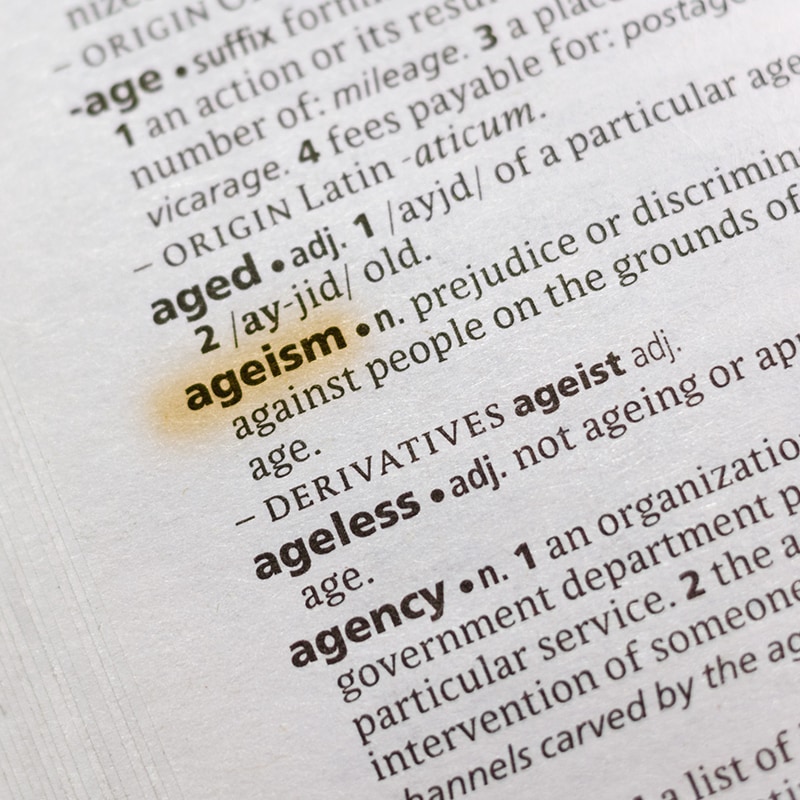
As we grow older, some things naturally change.Our bodies, our environments, sometimes even our likes and dislikes.Even so, we remain the same at our core as when we were young.
Just because we age, doesnt mean we should be treated differently because of it.When we are treated differently or unfairly because our age, this is called ageism.Lets take a step back and define what that is.
Ageism is the stereotyping, prejudice, and discrimination against people on the basis of their age, according to the World Health Organization (WHO).WHO continues with Ageism is widespread and an insidious practice which has harmful effects on the health of older adults.This is a pretty broad definition, so now lets take a closer look at what this means.First of all, were getting older as a society.
Much older.By the year 2030and for the first time in history20 percent of all Americans will be age 65 or older.* Here in California, 8.6 million adults will be 65 or older by 2030, making seniors the fastest growing population segment in the state.**As we age as a society, there is a lot of undue stress put on our existing care systems, that, realistically, we arent prepared for.Hospitals will become more crowded.
Family members will find themselves caring for loved ones over longer periods of time.The need for in-home paid caregivers is going to explode and then there is a big enemy in the form of ageism, which is likely to grow in tandem with the number of aging adults.As the population ages, there will be increases in the number of older individuals who will:Find themselves living in poverty or in unsuitable living conditions, including long-term care facilitiesBe treated differently because of mental or physical declines, and potentially denied services to treat those declinesBe taken advantage of financially, emotionally or physicallyBe discriminated against in the workplace, and perceived as being less competent than their younger counterparts simply because of their ageThese are only a few factors associated with an aging society.
What can do we do to prevent widespread ageism from happening, including our own family members, as America grows older? For starters, we can:Recognize and name ageism as a problem.Like systemic racism or sexual discrimination, ageism exists in many forms and is not always openly detectable.But it happens to older Americans all the time.
In order to fight it, we all must acknowledge it is an issue and identify its root causes.Put pressure on our lawmakers to enact laws and regulations that better protect older Americans from such things as unfair or illegal housing evictions, care facilities that partake in unlawful or harmful practices, or programs or organizations which exclude people on the basis of their age.Reject negative aging stereotypes that can influence how we see ourselves and others.Our society has painted a picture that old age equals physical and mental weakness, and full dependence on others.But not everyone is the same; there are plenty of older adults who are more than capable of self-care.
Also, being older does not mean anyone gives up their rights.Stand up for others when needed.Whether its an older co-worker who is being passed over for promotions or assignments, or someone you suspect is being taken advantage of financially, physically or mentally, take action on their behalf.Encourage your co-worker to report signs of discrimination to HR.
Dont be afraid to report elder abuse.Here are some guidelines to recognize signs of abuse and report abuse.Read this article on Ladders.com offers some good ideas for personally fighting ageism when its happening to you.Finally, we must recognize how those who fall victim to systemic racism and sexism may experience ageism at a higher intensity than their counterparts.* source: U.S.Census Bureau** source: California Department of Aging
Disclaimer: This story is auto-aggregated by a computer program and has not been created or edited by Senior Savings Deals.
Publisher: IOA Blog ( Read More )
Publisher: IOA Blog ( Read More )

